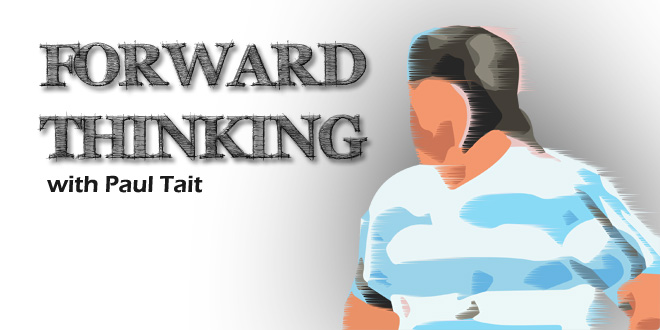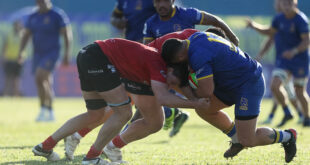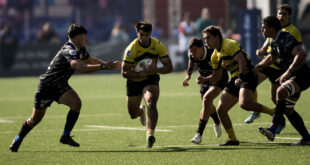It took a long time for my colleagues and I here at Americas Rugby News to compile the list of foreign-born players involved in the ongoing Rugby World Cup. This was due to there simply being so many players picked for the tournament who are playing for countries other than that which they were born in. Identifying who they all are and confirming how they qualify was an exhausting process.
The intention behind the article was not to beat around the bush but to enable readers to make informed decisions in regards to player eligibility. It also helped me on a personal level to reach my own conclusion about whether or not the current laws are ideal or not. My conclusion is that they require urgent change.
The laws that enable a player to represent a country by meeting one of the following criteria are:
- Born in the country
- Parent born in the country
- Grandparent born in the country
- 36 consecutive months (3 years) of residency immediately before time of playing
- No prior representative duty for a different test team or the next senior XV of a country
- No prior representative duty for a different team playing Rugby Sevens
The laws are very clear and explanatory but they are also very exploitatory. It is not a case of there being a select group of players or nations involved as, rather, the vast majority have one or more players on their 31-man rosters that they arguably should not have. The problem runs deep to include some of the most powerful teams with both host nations of the current World Cup not escaping questioning.
Birth
Selecting a player born in ones country is irrefutable. This should remain unchanged to continue to allow those who moved to another country at any time of their careers to play for their country of birth so long as they have not played for another.
Parent
Similar to birth, the parental law is straightforward. Any player should be able to represent the country which his mother or father comes from so long as he has not represented another previously.
Grandparent
It gets complicated at the third generation and the rule is one which rugby would benefit from by limiting eligibility through family to parents. New Zealander John Hardie has no place representing Scotland. He, himself, was clear in wanting to be an All Black but is playing for his grand mothers country after not being good enough to make the country’s World Cup roster that he played for at junior level. Another Scot, Sean Maitland, played for New Zealand at junior level and the Maori All Blacks. Like Hardie, Welsh prop Tomas Francis had not played in the team he represents today before being selected. The Englishman qualifies by having a Welsh grandmother.
Residency
This World Cup has underlined that three years residency is, simply put, not enough. It enables a player who missed out on being picked for his country to, if uncapped, represent another at the following Rugby World Cup. The solution is not to abolish the law but to extend it to to 5 years or 60 months.
The comparison of French international Scott Spedding and Rory Kockott is compelling. The former is a French citizen who has been playing in the Top 14 since 2008. In contrast, the latter arrived in France to play for Castres in late 2011 and come under the radar of Phillipe Saint-André straight away, debuting when eligible in 2014.
Others such as as Scotland’s Josh Strauss and Ireland’s Jared Payne moved to a different country with that union already thinking about utilizing them for international duty three years down the road. These two, like Kockott, are playing for some of the sport’s best teams due to having all performed well in the countries.
Representative Duty for Another
Tommaso Allan is Italian born and is playing for Italy at the World Cup. He, nonetheless, caught many by surprise when choosing Italy over Scotland whom he had represented at under 17, 18 and 20’s level. Another is Gonzalo Garcia who is Argentine and is eligible for Italy just like Brad Barritt is for England. Garcia played u21s for Argentina and Barritt did so for South Africa, in addition to playing for the Emerging Springboks.
Cuirisously Allan, Garcia and Barritt represented teams not classified as being the next of XV but a comparable player, Steven Shingler, was blocked from representing Scotland after having played under 20 rugby for Wales who lack an ‘A’ team. How can this be?
Shinglergate ought to have been used to establish a universal law for all instead there are many players in this World Cup who are identical to him only to have played for countries with ‘A’ teams. Samoan Ole Avei played u21 for Australia while both Kane Thompson and Faifili Levave both did so for New Zealand. Then there is Tim Nanai-Williams who played Rugby Sevens for New Zealand but is now playing for Samoa at the World Cup due to an Olympic loop-hole enabling him to switch allegiance.
Altered Eligibility Laws
The above outlines the ability of getting around laws and also that they need tightening. My solution to the problems described above would be to use Forward Thinking and alter eligibility laws. The laws I would enforce would be that for a player to represent a country he must meet one or more of the following:
- Birth
- Parent
- Schooling
- 5 Years Eligibility
- No prior Representative rugby at junior level, Rugby Sevens or ‘A’ team
- Spedding Act
The first two are self-explanatory with any player who was born in a country or whose has one or both parents born in a country being free to play for that country by right. The grandparent law, however, would be ended with players required to meet the eiligibility laws instead.
Those who are schooled in a country should be entitled to play for that country regardless of whether or not they or their parents are from there. All Black Malakai Fekitoa and Wallaby Will Skelton being examples. I consider three years to be acceptable for those to qualify for residency as minors.
Prior Representative Rugby Act
Having Avei, Barritt, Garcia, Hardie, Maitland, Nanai-Willams, Payne, Thompson and many others involved in this World Cup questions the legitimacy of the World Rugby Junior program. This must change with the law being overhauled to meet Shinglergate. The exception being those who qulaify via the Spedding act.
Spedding Act
My suggestion to the World Rugby Council is to adopt a law using the case of Scott Spedding as the instance. His six years in France should see his time with South Africa at under 21 level cleared thereby making him eligible to play for France. Quite simply should a player have played junior level for one country and wish to represent another he should be eligible to do so upon completing five consecutive years playing in that country.
Such a law would require a player to have been playing, without interruption, for five years in the country he wishes to represent. It would differ from the schooling law, which would be 36 rather than 60 months, due to it being designed for adults rather than those of school age or younger.
No player with prior senior level experience meets the Spedding act. In other words no capped player can go on to play for another country, ever.
Vision
Combined the new laws would promote those players produced at home over others. It would mean that in all likelihood there would be a decrease in the number of players from abroad representing teams in the next World Cup. The laws would, in no way, prevent those who move from representing their new countries but would, rather, significantly decrease the questioning.
The laws have seen proud, historically powerful nations overlooking some of their finest home-grown players in favor of imports who have, in some cases, literally just arrived in the country as was the case with Hardie and Maitland. This while Dollar Academy’s John Barclay, meanwhile, missed out. Indeed, if former Scottish prop Peter Wright had his way then Hardie would not be playing for Scotland.
 Americas Rugby News Rugby news from across the Americas!
Americas Rugby News Rugby news from across the Americas!




